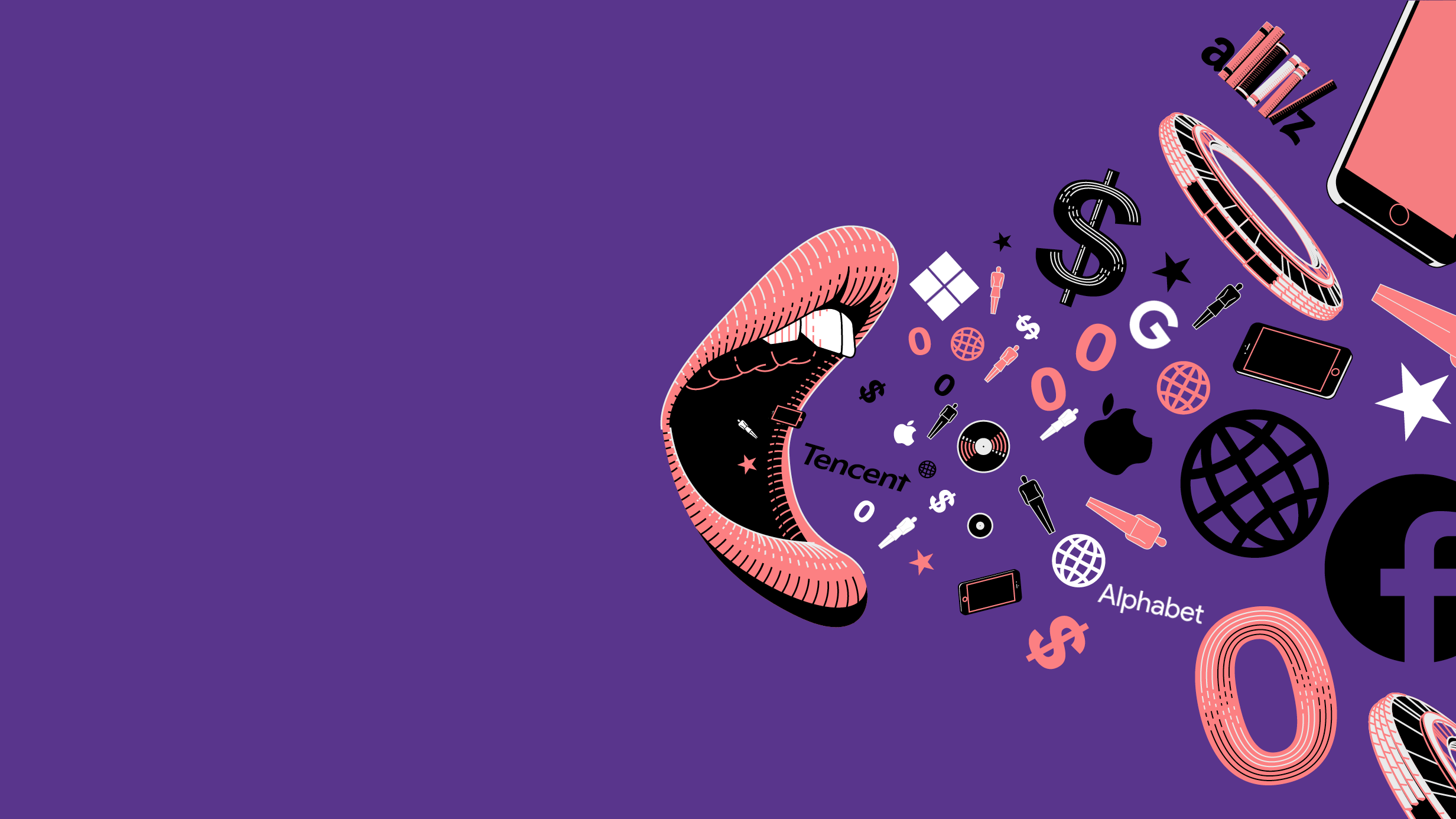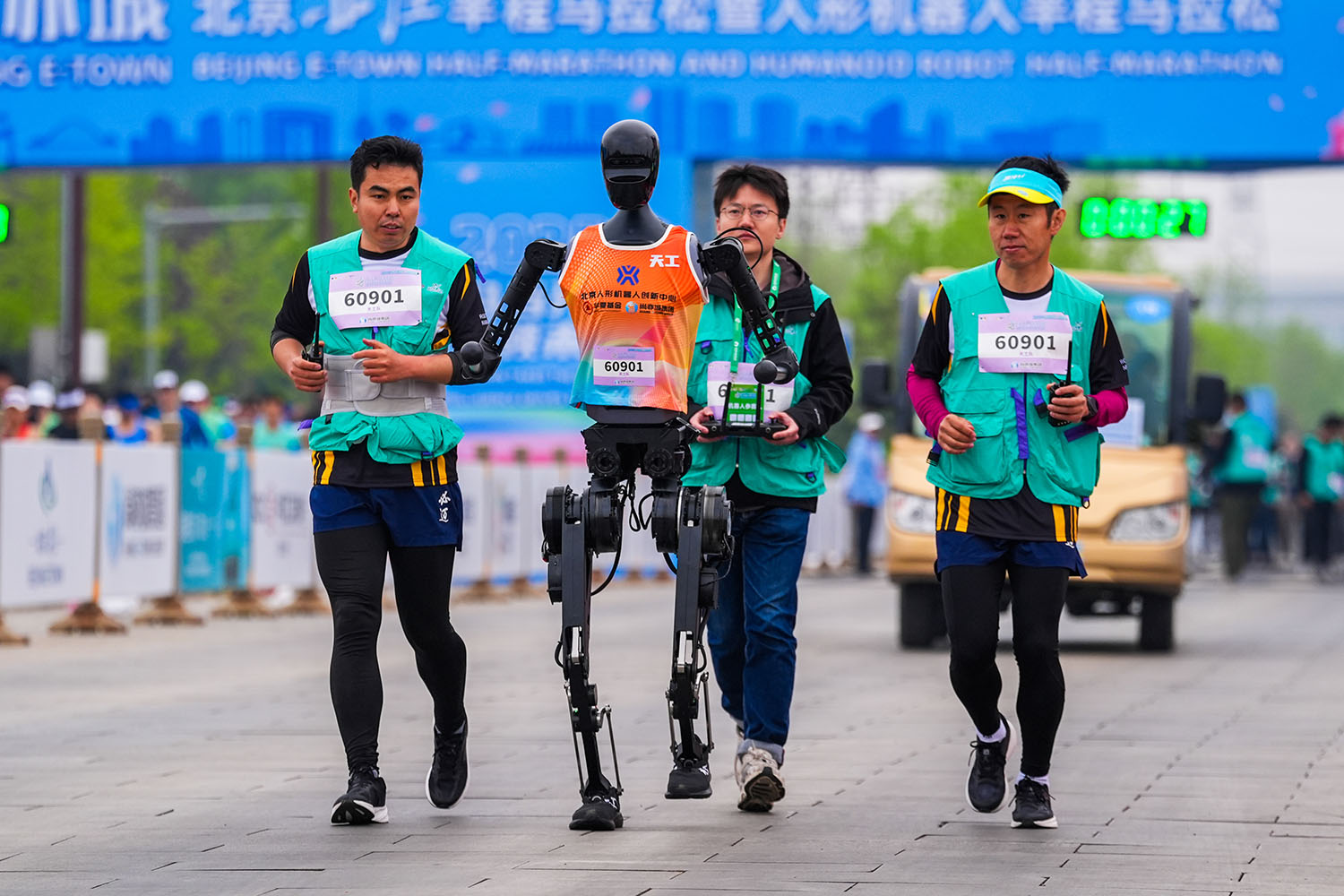
Since the pandemic began, the tech states have accelerated their investment in healthcare – developing wearables, driving breakthroughs and acquiring whole businesses.
Here’s what you need to know this week:
- Affairs of state: Why big tech is breaking into healthcare
State-by-state:
- Google Photos are not ageing well
- Meta faced another lawsuit over circumventing Apple’s privacy measures
- Apple doubled down on TSMC’s most advanced chips
- Microsoft revealed the divide between workers and bosses when it comes to working from home
- Amazon committed to cleaning up its vehicles
- Tencent appeased Xi’s government with a game to promote public health knowledge
Since the pandemic began, the tech states have accelerated their investment in healthcare – developing wearables, driving breakthroughs and acquiring whole businesses.
Last week, Tencent was granted its first new game licence in over a year. The game is unlikely to be a smash hit – it’s called Health Defence, and Tencent sees it as a “social service” that will “promote public health knowledge” – as players help prevent the infection of a virtual human body with a range of dangerous viruses.
In the same week Tencent also bought a sizable stake in Xunjie Medical, an international healthcare product manufacturer. The company makes defibrillators, and other first aid hardware.
The physical and the virtual. Investing in information and infrastructure, like Health Defence and Xunjie Medical, encapsulates the multipronged approach that Tencent and other technology companies are taking to the healthcare sector.
Healthcare is their new frontier. A handful of the largest tech companies – the tech states that we report on – see healthcare provision as an opportunity that allows them to leverage two major strengths: data and cash.
Professor Kevin Schulman, a professor of medicine at Stanford University, said tech companies have to move into healthcare: “It’s 20 per cent of the US economy now, a four trillion dollar industry.”
The move has been hampered by concerns about data protection. “There’s been lots of bad publicity about companies selling health data, and there remains an issue with protecting people’s privacy,” Schulman said. “The healthcare business model and the big tech business model are very different. They’ve typically focused on how to sell advertising, not on how to sell services, and healthcare is a service.”
But as economic conditions worsen around the world, healthcare could be a sector in which technology can help deliver services and hold down prices. “The cost of healthcare is rising again,” Schulman said. “It’s a really good time to be thinking through technology-enabled business models in healthcare that could improve efficiency. In many places, the healthcare system is just not set up properly.”
Google is buying breakthroughs. Alphabet, which owns Google, has mostly driven its healthcare strategy through advanced computing and innovation, but has also explored health-related wearables.
In 2020, DeepMind – Google’s artificial intelligence subsidiary – made one of the most significant breakthroughs in modern health technology: AlphaFold2. It made the structures of over 200 million proteins available to clinicians and researchers in an open-source database. The data is extremely valuable in lab settings where it can save hundreds of hours of testing and speed up the discovery of new enzymes, tissue types, drugs and diseases.
In the following year, Google Ventures made over 100 different investments in other parts of the life sciences and healthcare sector.
Also in 2021, Google looked to compete with Apple in the wearables market, by purchasing FitBit. The $2.1 billion acquisition will mean that FitBit users have to use a Google account to sign-in and manage their wellness-tracking devices.
Apple is also betting on wearables. Apple envisages health-related devices and partnerships with medical institutions as the future of the company.
The wearables market is supported, in large part, by the demand for fitness and health tracking. Features such as blood oxygen tracking, heart rate, sleep hygiene and activity data are a key part of the Apple Watch offering. Tim Cook, Apple’s CEO, has said that “if you zoom out into the future… and ask the question: ‘what was Apple’s greatest contribution to mankind?’ [The answer] will be about health. We’re democratising it. We’re taking what has been with the institutions and empowering the individual to manage their health”. Apple’s ambitions in health are set out in this report from earlier in the year.
Amazon relies on acquisitions. Having recently closed its Amazon Care business, Amazon is pivoting into buying existing healthcare brands.
Amazon Care began in 2019 as one of the company’s biggest and most ambitious ventures. But last month the Washington Post – which is owned by former Amazon CEO Jeff Bezos – reported that Amazon Care has realised that building a clinical care business from scratch was too big a challenge and was pursuing acquisitions instead, including One Medical – a primary care company with clinics throughout the US – and PillPack, which was absorbed into Amazon Pharmacy in 2018.
Crucial to its success in healthcare is Amazon’s data and computing business. In an announcement of the One Medical acquisition Amazon said its aim was to provide a “seamless combination of in-person, digital, and virtual care services”.
Microsoft focuses on infrastructure. Microsoft has aimed to develop and sell healthcare infrastructure mainly in the form of cloud computing services. Azure, the world’s third largest cloud computing solution, has partnered with CVS Health to digitise services and care provision, including the use of computer vision in diagnostics and text analytics for health research.
Like Google and Amazon, Microsoft has also made substantial healthcare-related acquisitions. Most recently, the $19.7 billion purchase of Nuance, a natural language processing and conversation software company, was Microsoft’s second largest ever purchase (after LinkedIn) and intended to bolster its capabilities in digital health services.
Meta has faced constant controversy in the health sector. In 2018, a project originating in Facebook’s secretive ‘Building 8’ facility led doctors hired by the company to visit hospitals around the US to broker a data-sharing agreement that would allow Facebook to connect medical record data with the data it already had about Facebook users. The project failed to launch in light of the Cambridge Analytica scandal – which saw millions of Facebook users’ data collected without consent and used for political advertising in the 2016 presidential campaign – and was shut down in its planning phase.
Meta’s pivot to the “metaverse” hasn’t left healthcare untouched. The company’s Quest – formerly known as Oculus – virtual reality division is said to be working on virtual teaching hospitals and medical training software. Meta also participated in an investment round for Singaporean mental healthcare startup, Ami. Ami’s service runs on WhatsApp, which Meta owns.
Dr Hakan Özalp, Assistant Professor Amsterdam Business School, said that technology companies have been drawn into the healthcare space for several reasons. “Covid-19 spurred a large-scale shift in investment” he said, “and the increased burden on traditional healthcare providers became very clear”. The old, non-digital system simply wasn’t sufficient in most countries. “The small healthcare startups that were creating real innovation were bought up by big existing companies in the same ecosystem, namely the big tech companies”.
Why this story?
- Covid. “Covid-19 spurred a large-scale shift in investment,” says Dr Hakan Özalp of Amsterdam Business School. ‘The increased burden on traditional healthcare providers became very clear”. Old analogue systems simply weren’t sufficient in most countries. “The small healthcare startups that were creating real innovation were bought up by big existing companies in the same ecosystem, namely the big tech companies”.
- Scale. The healthcare market is enormous, at roughly 11 per cent of global GDP. It is one of the few remaining markets in which the tech states have not yet made significant inroads. Commercial health insurance used to consume 12 per cent of median household income in 2000 (in the US market), and it now sits at nearly 25 per cent. Dr Özalp said that the emergence of big tech as leaders in the healthcare space is a double-edged sword. They may be able to provide better services, at lower costs and curb the harms from rising healthcare costs, but “it will also make them much more powerful. They will benefit from targeting customers with advertising, health and consumption data. They will have many more synergies compared to other healthcare providers given their scope and scale.”
We report on the tech states because they have a massive impact on our lives. If they continue to conquer the healthcare market, that impact is set to grow.
Photos saved on Google Drive might be degrading. Google Photos users have been reporting that some photos saved years ago show signs of degradation including transparent lines and pools of messy pixels. One user wrote, “These are pictures I know for a fact were uploaded and saved properly,” another wrote, ““I cannot express how depressing this is right now,” TechRadar reported that the issue could have been caused by a change in the compression algorithm which is used – as its name implies – to save space. It is not yet clear whether users can restore their images, or what other file types might be affected by the issue.
Meta is facing allegations that it sidestepped Apple’s privacy changes. A new class action lawsuit in the US accuses Meta of continuing to track and collect data from iPhone users that had activated features intended to stop their personal data being harvested and shared with advertisers. Meta allegedly continued to track user clicks, interactions, text selections and text input whilst using in-app browsers. This is a violation of Apple App Tracking Transparency measures. As Bloomberg Law reported, a San Francisco federal court will hear the case in the next few months.
Apple is likely to remain TSMC’s largest customer. Last week it was announced that Apple would use the Taiwan Semiconductor Manufacturing Company’s (TSMC) newest N3E chips in iPhones and Mac computers next year. TSMC is a world leader in chip production, though Samsung and other companies are hoping to catch up in terms of advanced chip production, with 3-nm technology (tiny chips with more transistors squeezed onto their surfaces to make them more powerful) being a key benchmark for the industry.
A survey conducted by Microsoft has shown that bosses think workers slack off at home. Microsoft surveyed 20,000 staff in 11 different countries to find that 87 per cent of workers believed that they are more or as productive when working from home, but 80 per cent of managers disagree, believing that working from home leads to lost productivity. Another interesting finding: before the pandemic, only 2 per cent of job postings on LinkedIn (of which there are 14 million) involved remote working. This year, that figure has risen to 15 per cent.
Amazon is committing to lower carbon electrofuels. This week, Amazon signed an agreement with renewable fuels technology company Infinium, aiming to fuel its transportation and delivery fleet with a lower carbon alternative to fossil fuels. Electrofuels are a new class of replacement fuel that uses electricity to combine hydrogen molecules in water with carbon dioxide, and can be used in many conventional engines. Amazon reported that indirect emissions from capital goods (including vehicles) made up 26 per cent of its footprint in 2021. If Amazon’s trucks transition to cleaner fuels this figure will drop.
There’s more to Tencent’s licence for Health Defence. The world’s largest gaming company had not received an official licence for a new game in over 15 months. Part of the reason for the hiatus was an aggressive move by the Chinese government to curb the risk of gaming addiction among China’s youth. President Xi’s officials have described gaming as “spiritual opium” and a major threat to the moral integrity of the Chinese state. Health Defence, against the backdrop of China’s ongoing Zero-Covid measures is a clear attempt to appease Xi’s government and, as described above, progress Tencent’s strategy for providing a “social service”.
Thank you for reading the Tech States Sensemaker and do ask your friends to sign up. We’ll send it to you every Wednesday but if you’d rather opt out, just update your preferences and follow the link sent to you by email. Please email opinions, tips or stories to luke.gbedemah@tortoisemedia.com. If you’d like to arrange for your organisation or group to receive this newsletter, drop us a note here.
Luke Gbedemah
@LukeGbedemah
Sebastian Hervas-Jones









